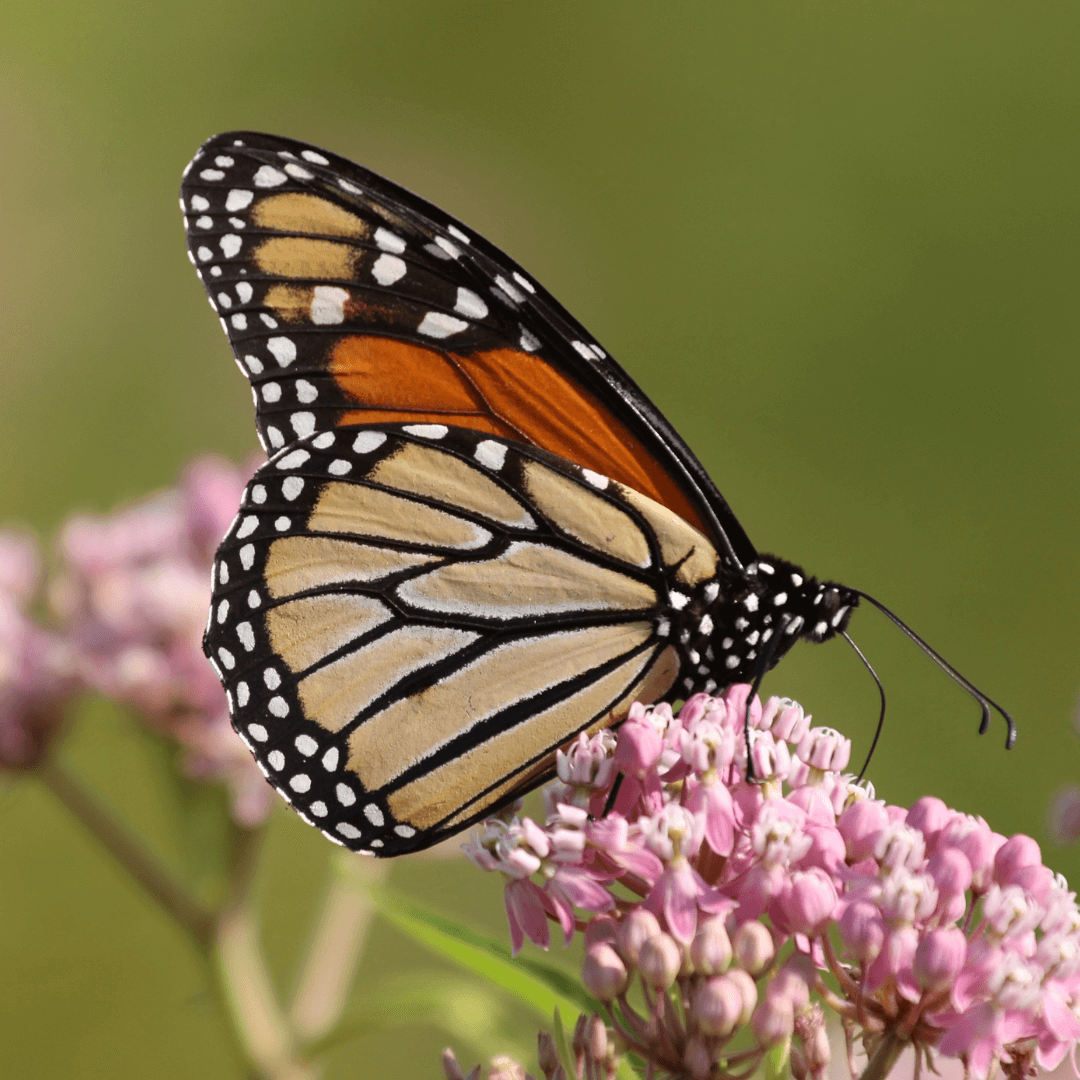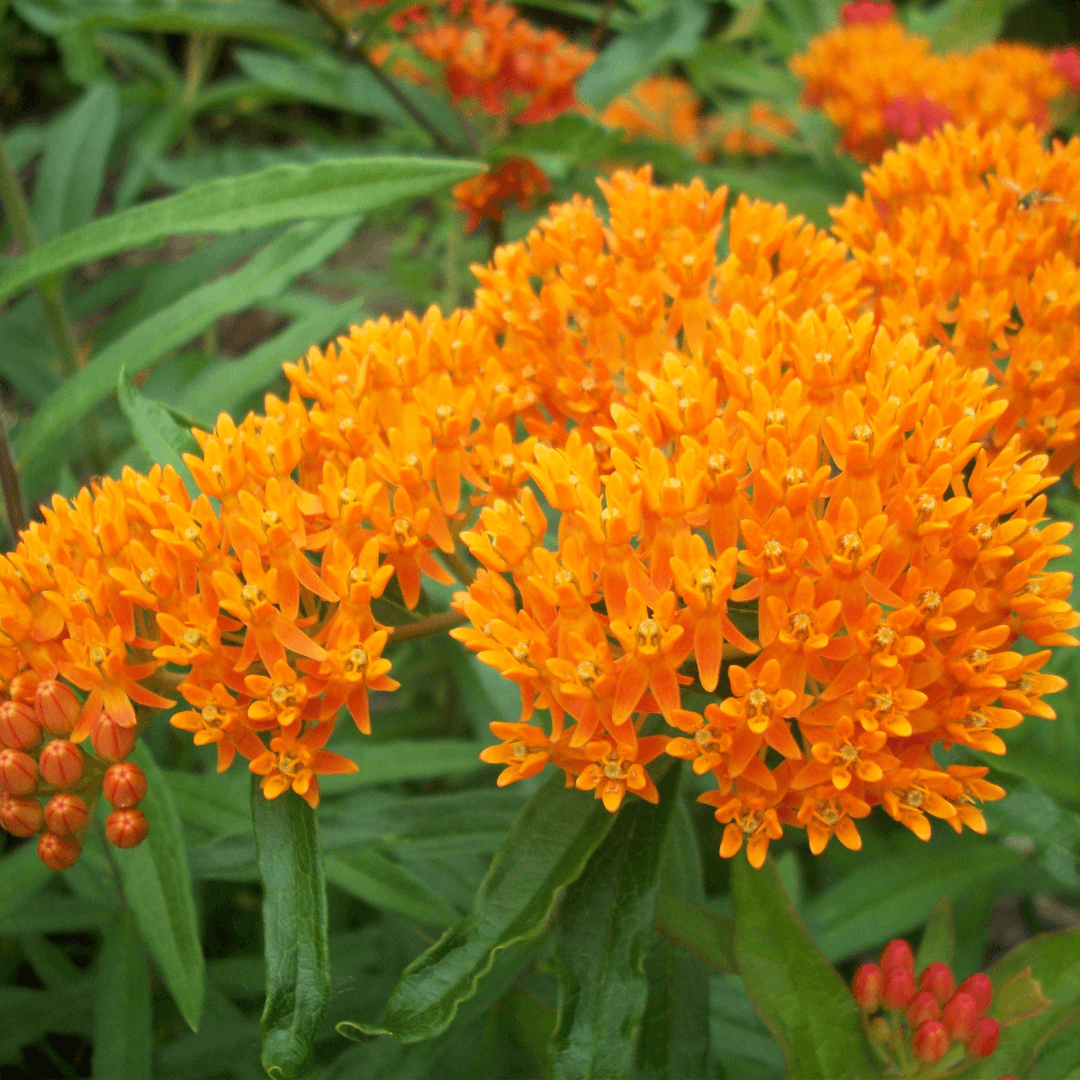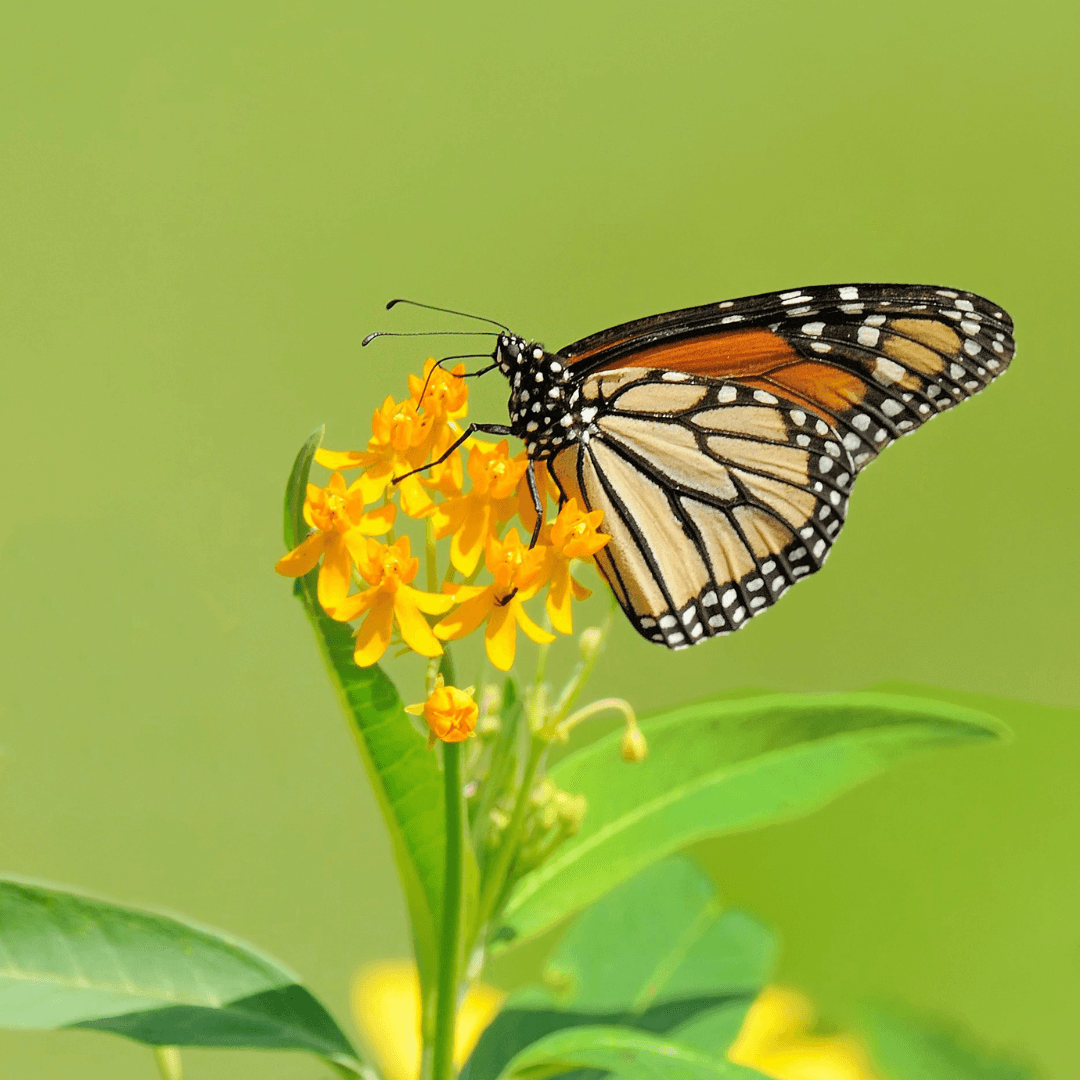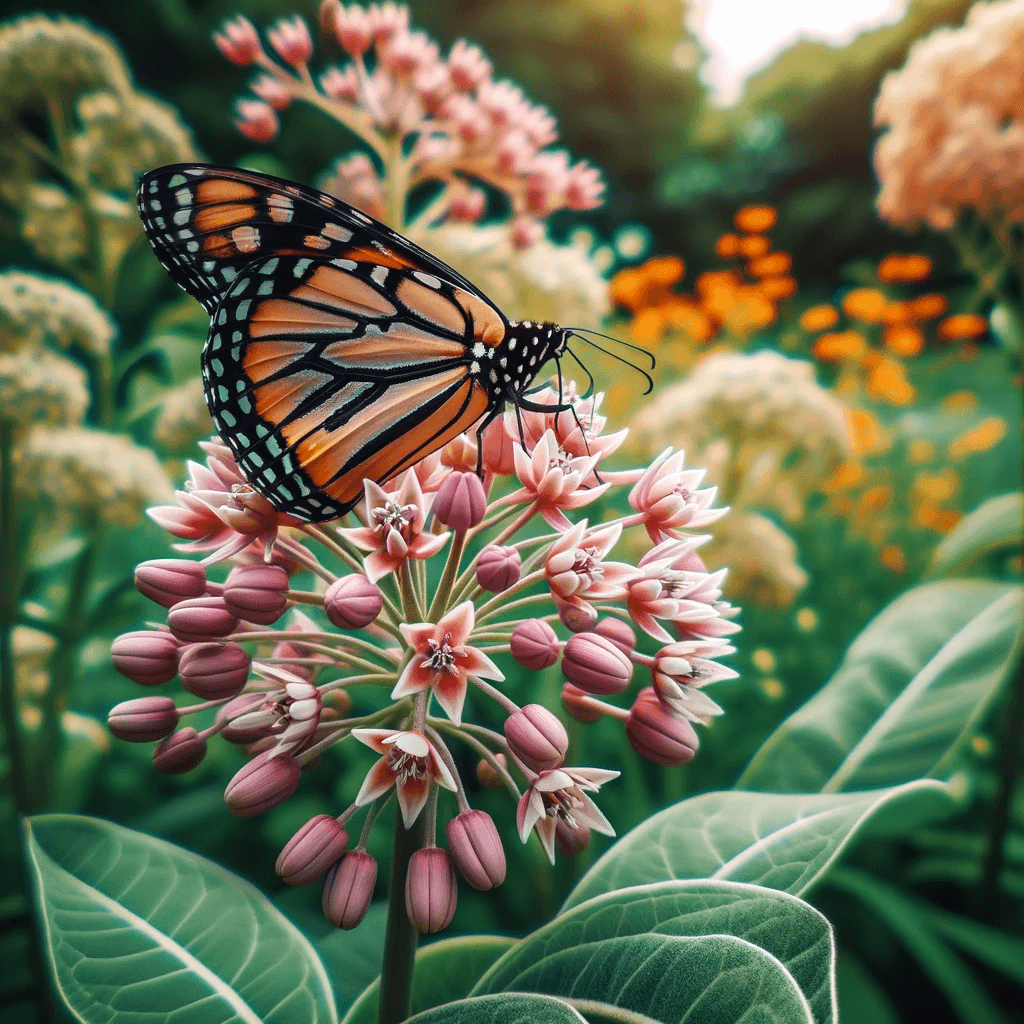As a gardener, I've faced my fair share of challenges in my garden, and one of them is dealing with pests that threaten the beauty and health of my beloved plants. Milkweed is a popular choice for many gardeners, as it is essential for the Monarch butterfly's life cycle. However, milkweed can also attract unwanted pests, such as aphids. One method often recommended for pest control is neem oil, so you're probably wondering can I use neem oil on milkweed plants without harming the Monarch caterpillars? This in-depth guide will explore the pros and cons of using neem oil on milkweed and provide a step-by-step approach to help you control aphids and other pests on your milkweed plants.
1. What Are Aphids, and Why Are They a Problem?
Aphids are small, soft-bodied insects that can be found in various colors, depending on their species. One of the most common species found on milkweed plants is the Aphis nerii or oleander aphids. These insects feed on the sap of plants, causing distorted growth, wilting, and sometimes even plant death.
Aphids and Milkweed Plants
Aphids on milkweed plants are particularly problematic because they can multiply rapidly, leading to a significant aphid infestation in a short amount of time. This can make the milkweed plant weak and less attractive to Monarch butterflies for laying eggs. Additionally, aphids can transmit harmful plant viruses, further threatening the health of your milkweed.
Milkweed Seeds For Monarch Butterflies | 4 Variety Pack

$7.95
Milkweed Seed Assortment For Planting – 4 Stunning Varieties to Attract Monarch Butterflies and Beautify Your Garden Transform your garden into a thriving paradise with our Milkweed Seed Assortment for Planting. This exclusive collection features four exquisite Milkweed varieties -… read more
2. The Importance of Milkweed for Monarch Butterflies
Milkweed plants are crucial for the survival of Monarch butterflies, as they are the only plant on which Monarch butterflies will lay their eggs. The caterpillars that hatch from these eggs feed exclusively on milkweed leaves, making the presence of healthy milkweed plants vital to their development.
Milkweed Varieties
Numerous milkweed varieties can be grown in gardens, each providing essential nutrients for Monarch caterpillars. The diverse milkweed varieties in your garden can help support the Monarch butterfly population and promote their conservation.
3. Neem Oil: A Natural Pest Control Solution
Neem oil is a natural pesticide derived from the seeds of the neem tree. It effectively controls various pests, including aphids, and is generally considered safe for plant use. However, using neem oil on milkweed requires special care, as the oil can negatively impact Monarch caterpillars and eggs.
Using Neem Oil Safely on Milkweed
Before applying neem oil to your milkweed plants, it is essential to take the following precautions:
- Avoid spraying neem oil directly on Monarch eggs and larvae.
- Remove any visible Monarch caterpillars from the plants before spraying.
- Spray neem oil in the early morning or late evening when Monarch butterflies are less active to minimize the chances of direct contact with the oil.
4. How to Apply Neem Oil to Milkweed
Follow these step-by-step instructions to safely apply neem oil to your milkweed plants:
-
Mix one tablespoon of neem oil with a gallon of water in a spray bottle. You can add a few drops of dish soap to help the neem oil mixture adhere to the plant's surface.
-
Shake the spray bottle well to ensure the neem oil and water are thoroughly mixed.
-
Before spraying the entire plant, test a small area of the milkweed plant to ensure no adverse reactions to the neem oil mixture.
-
Once you have determined that the milkweed plant can tolerate the neem oil, spray the entire plant, paying particular attention to the undersides of the leaves where aphids tend to hide.
-
Monitor the milkweed plant for any signs of aphid resurgence. If necessary, reapply the neem oil mixture every 7-10 days until the aphid infestation is under control.
-
After spraying, keep an eye on the plant for the return of Monarch eggs and caterpillars. Remember to stop using neem oil once you notice them, as the oil can negatively affect their development.
Wildflower, Perennial, & Annual Flower Seed Kit | 35 Variety Pack

$29.95
$49.95
35 Flower Seeds Variety Pack – Heirloom, Non-Hybrid, Non-GMO, Open-Pollinated – Perfect for Pollinator-Friendly Gardens Transform your garden with our 35 Flower Seeds Variety Pack, offering a stunning and diverse selection of heirloom, non-hybrid, and non-GMO seeds. Each variety in… read more
5. Alternative Pest Control Methods for Milkweed
If you prefer not to use neem oil on your milkweed plants, alternative methods are available to control aphids and other pests.
Insecticidal Soap
Insecticidal soap is a safe and effective alternative to neem oil for controlling aphids on milkweed plants. It should be cautiously applied to avoid harming Monarch eggs and larvae like neem oil.
Beneficial Insects
Introducing beneficial insects, such as ladybugs and lacewings, to your garden can help control aphids by acting as natural predators. These insects can significantly reduce aphid populations without causing harm to Monarch caterpillars.
6. Preventing Aphid Infestations on Milkweed
Taking steps to prevent aphid infestations on your milkweed plants can help you maintain a healthy garden and support the Monarch butterfly population.
-
Keep your plants healthy: Strong, healthy milkweed plants are less likely to be affected by aphid infestations. Ensure your plants receive proper care, including adequate water, sunlight, and nutrients.
-
Monitor your plants regularly: Checking your milkweed plants regularly for signs of aphids can help you catch an infestation early and take action before it becomes a severe problem.
-
Remove aphids manually: If you notice a small number of aphids on your milkweed plants, you can remove them by hand or using a strong spray of water from a hose.
7. The Importance of Being Aphid-Free
Keeping your milkweed plants aphid-free can help support the Monarch butterfly population and contribute to their conservation efforts. Healthy milkweed plants provide a suitable environment for Monarch butterflies to lay their eggs, ensuring the survival of their species.
8. Conclusion
In conclusion, we hope we have answered our question on whether can I use neem oil on milkweed flowers. Neem oil can be used safely on milkweed plants to control aphids and other pests, as long as special care is taken to protect Monarch eggs and larvae. Following the step-by-step guide in this article, you can effectively rid your milkweed plants of aphids while keeping Monarch caterpillars safe. Alternative pest control methods, such as insecticidal soap and beneficial insects, can also be employed if you prefer not to use neem oil. Maintaining healthy, aphid-free milkweed plants in your garden is crucial for supporting the Monarch butterfly population and contributing to their conservation efforts. Please use caution when using neem oil, as it can harm the butterflies you are trying to protect by planting milkweed.
 Frequently Asked Questions - Can I Use Neem Oil on Milkweed
Frequently Asked Questions - Can I Use Neem Oil on Milkweed
Q1: Can neem oil harm Monarch caterpillars and eggs?
A1: Noem oil can harm Monarch caterpillars and eggs if not used carefully. When applying neem oil to milkweed plants, take precautions to avoid spraying directly on Monarch eggs and larvae and remove any visible caterpillars before pouring.
Q2: How often should I apply neem oil to milkweed plants?
A2: If necessary, reapply the neem oil mixture every 7-10 days until the aphid infestation is under control. Monitor the plant for the return of Monarch eggs and caterpillars and discontinue using neem oil once they reappear.
Q3: What are some alternative methods to control aphids on milkweed plants?
A3: Some alternative methods to control aphids on milkweed plants include using insecticidal soap or introducing beneficial insects, such as ladybugs and lacewings, to your garden.
Q4: How can I prevent aphid infestations on milkweed plants?
A4: To prevent aphid infestations on milkweed plants, keep your plants healthy, monitor them regularly for signs of aphids, and remove aphids manually when detected.
Q5: Why is it essential to keep milkweed plants aphid-free?
A5: Keeping milkweed plants aphid-free is crucial for supporting the Monarch butterfly population, as healthy milkweed plants provide an environment for Monarch butterflies to lay their eggs, ensuring the survival of their species.
Butterfly Milkweed Seeds

$2.49
Butterfly Milkweed Seeds - Heirloom, Non-GMO, Non-Hybrid, Open-Pollinated - Perfect for Pollinator Gardens Grow a vibrant and essential addition to your garden with Butterfly Milkweed seeds. Known for their stunning orange blooms, Butterfly Milkweed (Asclepias tuberosa) is a hardy perennial… read more
Q6: Can I use dish soap as an alternative to control aphids on milkweed plants?
A6: A dish soap and water mixture can control aphids on milkweed plants. Mix a few drops of dish soap with a gallon of water and spray it on the affected plants, making sure to avoid contact with Monarch eggs and larvae. This method is less harmful than neem oil, but it's essential to rinse the plants with water after applying the soap mixture to prevent damage to the foliage.
Q7: How do I know if my milkweed plant is infested with aphids?
A7: Signs of aphid infestations on milkweed plants include distorted or yellowing leaves, the presence of a sticky substance called honeydew on the plant's surface, and the appearance of black sooty mold. You may also see clusters of aphids on the stems and undersides of leaves.
Q8: Can neem oil be used on all milkweed varieties?
A8: Neem oil can be used on most milkweed varieties; however, it's essential to test a small area before spraying the entire plant to ensure no adverse reactions to the neem oil mixture.
Q9: How do beneficial insects help control aphids on milkweed plants?
A9: Beneficial insects, such as ladybugs and lacewings, act as natural predators of aphids. They help control aphid populations by feeding on them, reducing the number of aphids on your milkweed plants without causing harm to Monarch caterpillars.
Q10: Are there any long-term effects of neem oil on milkweed plants?
A10: When used correctly, neem oil is generally safe for milkweed plants and does not cause long-term damage. However, it is crucial to discontinue neem oil once Monarch eggs and caterpillars reappear on the plant, as the oil can negatively affect their development. Regularly monitoring your plants and applying neem oil only when necessary can help maintain the health of your milkweed plants and support the Monarch butterfly population.





 Frequently Asked Questions - Can I Use Neem Oil on Milkweed
Frequently Asked Questions - Can I Use Neem Oil on Milkweed

